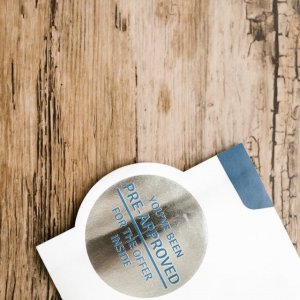Bankruptcy - The who what, when, how & why of the bankruptcy process
Common questions and answers
This page is designed to answer as many questions about bankruptcy that you might think of.
Who can be made bankrupt?
Only individuals can be made bankrupt. The word "bankruptcy" does not technically apply to companies or partnerships, although in general conversation you will find people using the phrase "company bankruptcy" instead of "company liquidation"
Individual members of a partnership can however also be made bankrupt.
How can you as an individual made bankrupt?
You can be made bankrupt in one of two main ways. The first way is if the you make yourself bankrupt. This is sometimes called a "self petition" or "petitioning for your own bankruptcy".
One of the people who you owe money to can also make you bankrupt by serving you with a statutory demand then issuing a bankruptcy petition. The court then considers the petition at a court hearing and if the judge thinks it appropriate he will make a bankruptcy order. If you are subject to an individual voluntary arrangement and that arrangement fails it is probably a term of the arrangement that your supervisor will have to petition for your bankruptcy.
What is the purpose of a bankruptcy?
One purpose of the bankruptcy order is to appoint a responsible person (called a Trustee in Bankruptcy) who has a duty to collect in the bankrupt's assets and distribute them to his creditors in accordance with the priorities set down in the law. The relevant law ids found in The Insolvency Act 1986. The second purpose is to write off all of your debts so that you might have a "fresh start".
Who is appointed to deal with the bankrupt's estate?
Once a bankruptcy order is made, the court will usually appoint the Official Receiver to administer a bankrupts estate. The Official Receiver is a civil servant and an officer of the court. The Official Receiver must then decide within twelve weeks ol the bankruptcy order being made whether to call a meeting of creditors to appoint a licensed insolvency practitioner to act as trustee in bankruptcy. If the assets in the bankruptcy are relatively small in value the private sector insolvency practitioner then appointed as Trustee is usually appointed on a "rota" basis.
What is the effect of the bankruptcy order on the individual who has been made bankrupt?
The bankrupt's property vests in (becomes owned by) the trustee. The bankrupt loses any rights to his property apart from certain equipment needed by him for use in his business, basic domestic equipment such as clothes, bedding and furniture, and certain pension rights.
There are several separate web pages on this site that explain how the bankrupt's house is dealt with in bankruptcy.
The trustee may be able to obtain a court order over the bankrupt who then has to pay over part of his future income if there is more income than is required to meet reasonable domestic needs.
The trustee may also claim any property acquired by the bankrupt in the one year after the bankruptcy order, such as assets left to the bankrupt in a will of a relative or other windfall sums such as a lottery win.
The bankrupt can carry on being self employed in business but with the following restrictions:
- The bankrupt must not obtain credit of more than £500 from anyone without telling that person that he is an undischarged bankrupt.
- The bankrupt must not carry on business under a name different to that under which he was declared bankrupt without disclosing the fact that he is an undischarged bankrupt.
- The bankrupt must not act as a director of a company or be involved in its management without the court's consent.
What are the powers of the trustee in bankruptcy?
The trustee's powers are wide and include powers to sell the bankrupt's assets, to carry on the bankrupt's business, to bring and defend legal proceedings, and to pay dividends to the bankrupt's creditors. The trustee also has wide investigatory powers. Some of the trustee's powers can only be exercised with the agreement of the creditors' committee (or if none the DTI or the court).
Does the trustee pay unsecured creditors the money owed to them?
Secured and preferential creditors are paid before unsecured creditors. Secured creditors are those that have some form of security over a bankrupt's property (for instance a building society where a bankrupt has a mortgage). Secured creditors are entitled to be repaid their debt out of the proceeds of sale of the secured asset, in priority to other creditors.
Preferential creditors are a special category of unsecured creditor. They include certain debts due to employees and are paid in priority to all other unsecured creditors.
The trustee will pay a dividend to unsecured creditors if enough funds have been realised from the bankrupt's assets after paying costs, secured creditors and preferential creditors.
When all claims have been reviewed (proved) the trustee will declare a dividend. The dividend will be a percentage (pence in the pound) of each creditor's total admitted claim, based on the total cash available for distribution to the creditors and the total of all creditors' claims. All unsecured creditors are treated equally.
"The bankrupt can continue to trade after the bankruptcy order…. Any new debts created cannot be claimed in the bankruptcy"
How do I make a claim in a bankruptcy if I am owed money?
The Trustee in Bankruptcy will write to all known creditors asking them to submit a proof of debt form. You should complete this form and return it to the Trustee within the specified time limit. You should also send enough supporting evidence of your claim, e.g. copy statements, invoices, correspondence etc., to allow the Trustee in Bankruptcy to decide whether or not your claim is valid. You must use the form sent by the trustee to make your claim. The Trustee will not necessarily acknowledge receipt of your claim, but will advise you when he has admitted your claim. Any costs incurred by you in submitting your claim will not be reimbursed.
If you believe that you own something that is in the bankrupt's possession, you should contact the Trustee in Bankruptcy as soon as possible with full proof of ownership. Be prepared to identify what you are claiming. The Trustee will examine your claim carefully before deciding whether to release the goods in question or pay you for them, or otherwise.
How will the Trustee in Bankruptcy prove my claim as a creditor?
The Trustee in Bankruptcy will consider your proof of debt form and any supporting information. He will compare your claim to the bankrupt's records and any other information, and may discuss the claim with the bankrupt. The Trustee may ask you for additional information or evidence if he thinks you have not sufficiently proved your claim. For example, if you have supplied goods to the bankrupt, the Trustee may ask you to provide copies of signed delivery notes.
The Trustee may agree your claim in full, or in part, or he may reject your claim if he does not think it is valid.
What can I do if believe the Trustee in Bankruptcy has unfairly rejected rny claim as a creditor?
You should first discuss the matter with the Trustee. If you cannot reach agreement you can, within 21 days of rejection, appeal to court. After 21 days, if you do not apply to the court, the Trustee's adjudication is final.
Does the trustee have to fulfil contracts entered into by the bankrupt prior to his appointment?
A trustee has a general duty to maximise the level of dividend to creditors. The trustee may decide not to fulfil a contract if it does not benefit creditors as a whole. If the trustee chooses not to fulfil a contract, the other party may have an unsecured claim in the bankruptcy for breach of contract.
Is the trustee liable for sums due under contracts entered into by the bankrupt after the bankruptcy?
No. While the bankrupt can in certain circumstances continue to trade after the bankruptcy order (with the conditions noted above]. Any new debts created cannot be claimed in the bankruptcy.
As an unsecured creditor, what information am I entitled to?
The Official Receiver must send at least one report to creditors after his appointment. This will usually contain a statement of affairs completed by the bankrupt showing details of his assets and liabilities.
The Trustee has no duty to report to creditors on the progress of the bankruptcy, until the bankruptcy is complete or until he plans to pay a dividend. The Trustee in Bankruptcy may call meetings of creditors or send written reports to creditors if there are any major developments in the bankruptcy. If you would like information on progress at any time you should contact the Trustee.
You may also require the Trustee to hold a meeting of creditors if you have the support of 10% of creditors (by value of debt].
When the bankruptcy has been completed, the Trustee will call a final meeting of creditors and present a report on the bankruptcy.
How can I help the Trustee in Bankruptcy achieve the best possible outcome for creditors?
The unsecured creditors can form a creditors' committee to help the Trustee (see below). You should also tell the trustee if you believe the bankrupt has assets, income or business interests that he has not disclosed, or if you think you have any information that might be useful to the Trustee.
Can the unsecured creditors form a creditors' committee?
Yes. A creditors' committee may be appointed at a meeting of creditors and must consist of at least three-and not more than five creditors. The creditors' committee receives reports from the Trustee and may meet periodically. The creditors committee assists the Trustee, approves his remuneration and sanctions the exercise of certain of his powers.
Creditors' committee members are not paid, but will receive their reasonable travelling expenses as a cost of the bankruptcy.
How is the trustee's fee determined?
The creditors' committee (if there is one) or the creditors agree the Trustee's fee, failing which it will be determined in accordance with the scale laid down for Official Receivers or fixed by the court. The fee can be fixed as a percentage of the assets realised or distributed (or both], or by reference to:
- the time properly spent by the trustee and his staff;
- the complexity of the case;
- any exceptional responsibility borne by the trustee; and the effectiveness with which the trustee carries out his duties; and
the value and nature of the bankrupt's assets.
The Association of Business Recovery Professionals has prepared a separate guide explaining insolvency office holders' remuneration, which will be available from the person who gave you this guide.
When will the bankrupt be discharged from bankruptcy?
The bankrupt will usually be discharged from bankruptcy automatically after one year. The bankruptcy will last longer if the debtor has been bankrupt before or if the Trustee asks the court to prolong the bankruptcy - this may happen if the Trustee thinks that the bankrupt is not properly assisting him or is concealing assets.
Once discharged, the bankrupt is released from his bankruptcy debts, and can begin to trade again or be a company director without the restrictions mentioned above.
After he has been discharged, the bankrupt does not have any right to take back from the trustee any property that was part of his estate in the bankruptcy. However, if there is a surplus after payment of all creditors in full plus interest, then this remaining sum is returned to the bankrupt. In the meantime, the trustee will continue to hold these assets and apply them for the benefit of the bankrupt's creditors.
When does the Trustee in Bankruptcy cease to act?
The Trustee may continue to act after the bankrupt has been discharged if he needs to continue in office, for example if there are still assets to realise or creditors' claims to be agreed.
Also, the Trustee may cease to act before the bankrupt has been discharged if he has completed his work by that time.
What should I do if I am dissatisfied with the Trustee's handling of the bankruptcy case?
You should first contact the Trustee to try to resolve the problem. II you are still not satisfied, you may be able to make an application to court.
If you think that the trustee is guilty of professional misconduct, you should contact his recognized professional body (see below).
R3 is a centre of excellence representing all those who work with under-performing businesses in the UK. R3 does not license or discipline insolvency practitioners; this is the responsibility of the practitioner's recognised professional body. The RPBs are:
- The Association of Chartered Certified Accountants
- The Institute of Chartered Accountants in England and Wales
- The Institute of Chartered Accountants in Ireland
- The Institute of Chartered Accountants of Scotland
- The Insolvency Practitioners Association
- The Law Society
- The Law Society of Northern Ireland (for Northern Ireland only)
- The Law Society of Scotland
If you can think of any more what, when, why, how or who questions about bankruptcy please let us know and we will then update this page.
Would you like us to give you a call?
Fill in the form and we'll give you a call as soon as we can to discuss your needs in a free initial consultation with a Licensed Insolvency Practitioner. Alternatively give us a call on 01326 340579 if there is an urgency to your needs.
The information provided will be used solely to contact you and any information you provide will be held in accordance with our firm's privacy policy, and not used for marketing purposes.






